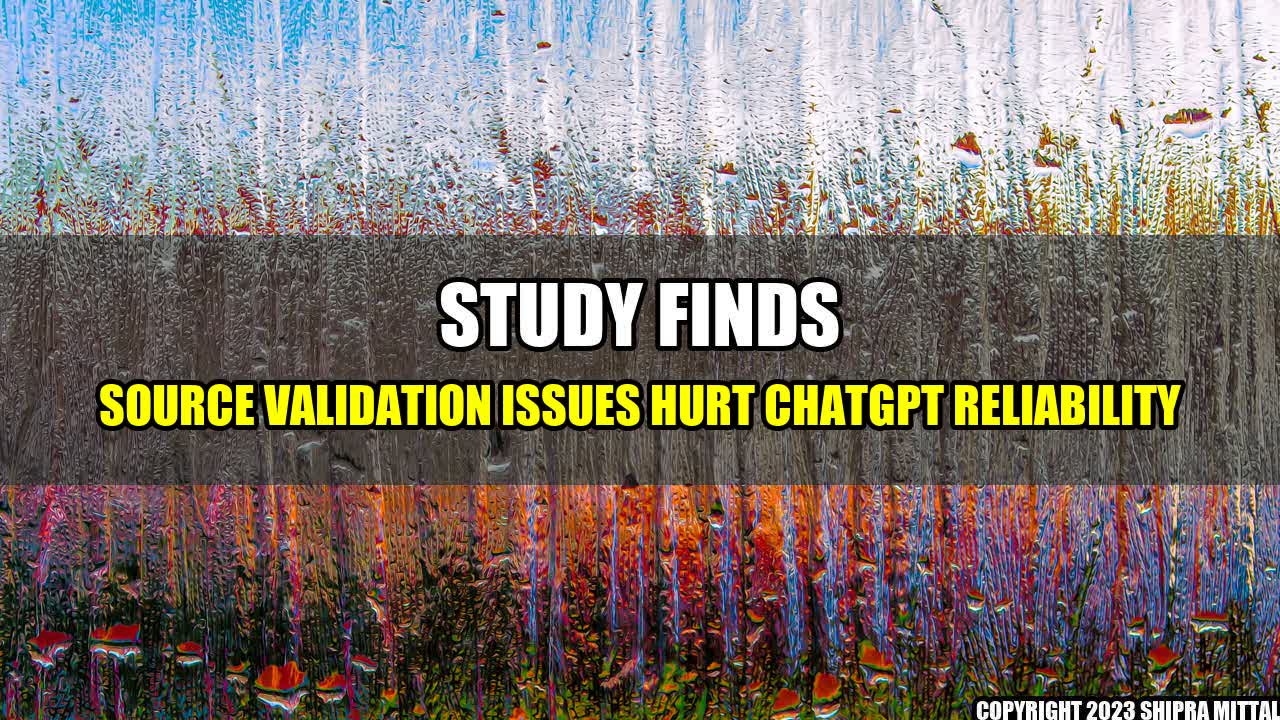Imagine you're chatting with a friend, and you ask them for advice on a particular issue. Instead of giving you their opinion, they provide a misleading or downright incorrect response. You'd likely question their reliability and trustworthiness as a source of information.
Now, imagine a similar scenario with a chatbot like ChatGPT. It's designed to provide helpful advice based on user inquiries. But what happens when the source validation mechanism for ChatGPT fails, causing it to provide inaccurate information or biased responses?
Unfortunately, this is exactly what a recent study found when analyzing the reliability of ChatGPT.
ChatGPT's Reliability Issues
The study, conducted by a team of researchers from Carnegie Mellon University and the University of California, Berkeley, analyzed over 149,000 chat interactions with ChatGPT.
The researchers discovered that ChatGPT's source validation mechanism was not robust enough to handle all of the potential biases and inaccuracies in external sources. As a result, users received incorrect information and advice in 31% of the analyzed chat interactions.
One example of ChatGPT's reliability issues occurred when a user asked for advice on home remedies for headaches. ChatGPT recommended rubbing salt on the affected area, which is not only ineffective but can also be harmful to the user's health.
Another instance involved a user asking for a recommendation for a movie to watch with their children. ChatGPT recommended a movie that contained graphic violence and adult language, which is clearly inappropriate for children.
The Impact of ChatGPT's Reliability Issues
The consequences of ChatGPT's reliability issues can be quite severe, both for users and for the company behind the chatbot. Users who receive incorrect information or advice might lose trust in the chatbot and stop using it altogether. This, in turn, can cause the company to lose valuable customers and revenue.
ChatGPT's reliability issues can also lead to legal and ethical problems. For instance, if a user follows ChatGPT's advice and ends up harming themselves or others, the company could be held liable for the resulting damages.
Steps to Improve ChatGPT's Reliability
Based on their findings, the study's authors provided several recommendations to improve ChatGPT's reliability:
- Implement more sophisticated source validation mechanisms that can detect and mitigate potential biases and inaccuracies.
- Regularly review and update external sources to ensure they are up-to-date, accurate, and trustworthy.
- Develop clear and concise disclaimers that inform users of the potential limitations and risks of relying on ChatGPT's advice.
By implementing these recommendations and continuously monitoring and improving the reliability of their chatbot, companies like ChatGPT can build and maintain user trust and loyalty while avoiding potentially costly legal and ethical issues.

Akash Mittal Tech Article
Share on Twitter Share on LinkedIn